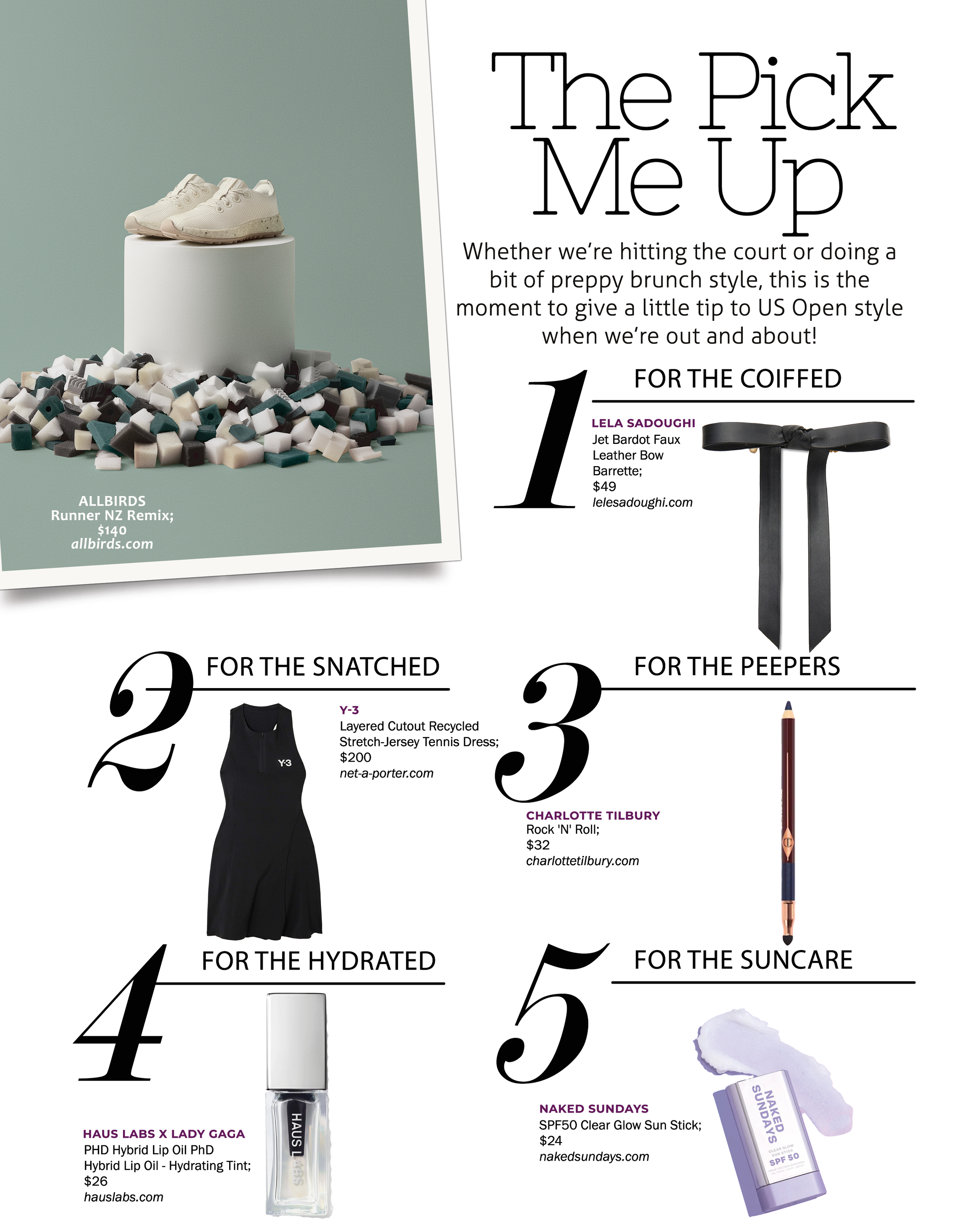When you're out with your girlfriends, you enjoy hanging out and a number of sips - that's when the conversation gets real. You talk about your love life, what you should do in your careers and then its down to talking about what's going on down there. Maybe you have questions or are prepping for when you have your next visit with your OB/GYN. We decided to find out answers to some questions that readers have asked us by talking with Dr. Sherry Ross who is based in Santa Monica. We found that talking with her was like adding her into our tribe of girlfriends!
ATHLEISURE MAG: Tell us about your background and how you knew that you wanted to be an OB/GYN. In addition, if you can, feel free to let us know about celeb clients that you have worked with.
DR. SHERRY ROSS: When I was a young girl, I would go on hospital rounds with my father who was a Urologist—I must admit that initially I went for the endless supply of donuts and apple juice in the doctor’s lounge. However, over time, I learned firsthand how much my father embraced and loved his patients and loved his profession. I took careful note of his compassion and the positive impact he had on his patients, as well as the powerful impact that my father’s patients had on him. I knew I wanted to be a doctor in order to experience that same powerful and healing give and take. I can honestly say that the most gratifying thing about my 25-year career in medicine has been the relationships and bonds I’ve developed with my patients. I gravitated to OBGYN in my 3rd year of medical school since I loved delivering babies and being a part of such a joyous and memorable experience. Helping women was so satisfying and enjoyable and I really felt as though I could make a difference in their wellness journey.
I felt as though when women's legs go up in stirrups, the conversation really begins and I could serve as their best friend or favorite therapist.
I am fortunate to take care of many A-list celebrities who also are committed to women’s health and wellness. Reese Witherspoon was incredibly kind and generous to write me a wonderful forward to she-ology. Social and celebrity influences can help promote the messaging of empowering women to take better control of their health and wellness.
AM: We had the chance to have lunch with you. Why do you think that women's health in terms of vaginal issues, questions etc seem to be difficult for women to address and what can we do to make these conversations easier to have?
DR. SR: Women need to be comfortable talking about their vagina’s. 50% of women never talk about their vaginal health with anyone, not even their doctor. If you can’t even say the word vagina how are we supposed to talk about it? Women need to talk about their specific health care issues, issues that are often ignored and not dealt with. There are very few places where women feel comfortable talking about their vaginas without feeling judged, so at the very least, a doctor’s office should be a bastion of comfort. 90% of women wished they had more information about vaginal health.
The inability to say the word “vagina” has been passed on in our culture from outdated attitudes, societal norms and misconceptions about the vagina and sex. It doesn’t help that our society as a whole is undeniably juvenile about our approach to vagina. As an example, in June 2012, a bill was presented on the House floor seeking to regulate the use of the word "vagina" after Micigan Representative Lisa Brown was banned from speaking because she used the term in a debate over an anti-abortion bill. "Brown's comment
so offensive, I don’t even want to say it in front of women,” complained Representative Mike Callton (R: Michigan). “I would not say that in mixed company.”
A ban on a word that is a medical term used to describe our female genitalia? Politics and mainstream media will not allow the word "vagina: to be said out loud without some sort of backlash. We need to change this reality for the sake of women’s health, especially since there doesn’t seem to be a problem in mainstream advertising for the treatment of erectile dysfunction!
I am counting on our younger generations of women to help lead the way and change the narrative on how we talk about our health, our bodies, and especially, our vaginas. Women need to take control of their bodies in every way. We cannot be afraid to ask uncomfortable questions. We need to learn and explore the changes our bodies experience throughout our lifetime.
The conversation needs to start at a young age with our girls, daughters, nieces and granddaughters.
It’s not just one “talk” we need to have with our daughters. There are many “talks” about their bodies and overall health that needs to happen depending on the developmental (hormonal!) milestone and what is age-appropriate. Before you start talking about human sexuality and sexual behaviors you have to have created an environment where your daughter feels comfortable discussing other sensitive topics such as puberty, proper nutrition, body image issues, recreational alcohol, tobacco and drug use.
When young girls learn about their body part—“here is my nose, my ears, my belly button”---they need to learn and use the word vagina from an early age so they become comfortable with their own anatomy. When mothers teach their daughters code names for their vagina, such as "Vajaja", this does not move the needle in the right direction of changing this narrative.
If mothers or other role models to young girls don’t initiate these types of sensitive topics, your daughter will find other ways of learning about her health and wellness from other resources. This is where the problem lies. Social media and porn have damaged our children in how they look at themselves.
It’s important for moms to normalize these conversations between a mother and daughter. The more comfortable and candid you can make these conversations, the more relaxed your daughter will be when her breast buds, period, body image concerns and sexual health issues present themselves to her.
In life there are a handful of sensitive subjects that feel completely awkward between a mother and a daughter and talking about her first period, breast development, pubic hair, the vagina, where babies come from and sexual health. In
truth, talking about your sexual health may be a completely off limit subject between mom and daughter.
Even though the average age of a young girl getting her period is 12 years old, puberty, in all its glory, starts as early as 8years old. Breast buds are noticeable 2 years before the period actually starts and can be detected between 8 to 13years. Pubic hair, hair under your arms and legs and acne also joins the hormonal party during the "tween" years. It's important to skowly and comfortably ease your daughter ito talking about her body and changes associated with puberty which empowers young women to embrace their body in a healthy way.
Promote body confidence. Teach your daughter about her body, use the correct descriptive terms when talking about her breasts, vagina and period. If young girls and women are not able to confidently own the proper words to describe their female body parts, it makes it difficult to comfortably talk about their personal needs and experiences.


































